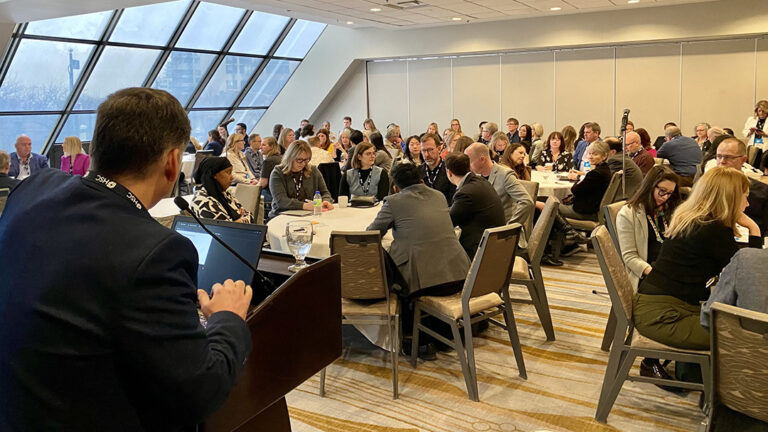Our March 15th webinar on Plancher and its financing tools sparked a lot of interest and many questions. We’ve collected and summarized all the questions that were sent to us during the presentation, and by email.
Many of these questions are complex, but we’ve tried to answer them as simply as we can. However, since Plancher is being developed with many partners, it’s not yet possible to provide full answers to every question. However, we always appreciate hearing your questions and feedback!
Frequently Asked Questions
Here are the answers to the questions we are asked most frequently about Plancher. However, it is important to understand that the Plancher concept is still evolving, based on negotiations with community groups, banking institutions, investors, and public authorities. It is therefore possible that the answers will be clarified in the weeks and months to come.
How does it work?
If you are not planning to do development, what is the advantage of pledging your equity to Plancher?
You will receive a 1% annual return on the equity you pledge with Plancher. You will also have access at any time to renovation loans at an advantageous rate.
How is the economic value of a property determined?
Based on annual revenues and anticipated expenses related to the building.
Who provides the necessary liquidity to Plancher?
The financial institution that uses the participating buildings as security, and the complementary investors.
Is it possible to lose the asset pledged to Plancher?
One of the main concerns associated with the development of Plancher is the protection of the assets of the groups placed as collateral. After all, the goal of Plancher is the growth and protection of community housing stock.
Although it is theoretically possible for assets to be lost, many protection mechanisms are in place to make this eventuality almost impossible.
These measures include the establishment of an additional first-loss guarantee, a team of analysts who will monitor all loans, preventive recovery measures for projects in a situation of uncertainty, and a loan portfolio approach which makes it possible to spread the risk.
Losses of more than 100 million would need to accumulate in spite of all of the measures of protection, control and redress, before this type of recourse would be considered.
What actions can an owner or manager of a building under agreement take to promote the implementation of Plancher?
You can indicate your interest in participating in the Fund by emailing us at Plancher@centre.support
Since the equity is placed as collateral, how will a participating building be able to finance any renovations they might need?
The Plancher fund will offer participating buildings loans at advantageous rates to enable them to carry out renovations on their property.
What will be the rate of management fees retained for the operation of Plancher?
Our preliminary estimate is that the management fee will be 0.5% of the assets under management. This amount will be reviewed by participating investors and properties when the Fund is set up.
Who is responsible for paying interest on the liquidity provided by the financial institution and how will loans issued be repaid?
The loans and interests will be reimbursed by those who are carrying out the renovation, construction or acquisition projects with loans from Plancher.
Conditions for taking part
Will it be possible to participate in the Plancher Fund if our building does not have equity?
Yes, your file will be studied by the team of analysts, and you may be able to participate thanks to the economic value of your building.
Will it be possible to participate in the Plancher Fund if our building is under agreement with the SHQ or the CMHC?
Discussions are underway with the CMHC and the SHQ to allow you to participate in the Plancher Fund. Currently, most conventions do not allow this.
How much equity will a building need to hold to participate in the Plancher Fund?
There is no minimum.
What is the membership period required to participate in the Plancher Fund? Is it possible to withdraw during participation?
The term of participation currently being targeted is 25 years, and it will not be possible to withdraw along the way.
Can non-residential buildings participate in Plancher?
Yes.
Are there geographical restrictions to participate in the Plancher Fund?
No, as long as the properties are in Quebec.
Can housing organizations under emphyteutic leases participate in the Plancher Fund?
Yes.
Beneficiary projects
Will Plancher’s community development support program be able to cover the hiring of staff, for example community workers?
Plancher’s community development support program aims to support local groups to initiate a real estate project (renovation, acquisition, construction, etc.) and cover project start-up costs.
The details of the costs covered by the community development support program will be decided collectively by the partners participating in the Plancher Fund, so they are still to be confirmed.
What will be the interest rate for loans granted to beneficiary projects?
It will depend on the types of loans. The intention is to offer loans below what will be available in the market at the time of borrowing.
In addition to loans, will the Plancher Fund be able to offer grants to beneficiary projects?
Probably. We work with complementary investors (foundations, governments and other) who can use Plancher as a grant allocation mechanism for projects with specific characteristics (more energy efficiency, specific territories, target demographic groups, etc.)
Thus, a proposal submitted to Plancher would be simultaneously considered for several funders, significantly simplifying and accelerating the work of groups and funders: one application, but several financing opportunities at the same time!
Is it necessary to contribute financially to the Plancher Fund to benefit from it?
No, except for the renovation loan, which is reserved for participating buildings.
Will the Plancher Fund be able to finance the decontamination of the soil of a building site, or a change of zoning to allow development?
Yes. The Plancher Fund currently plans to offer a loan aimed at projects pre-development operations.
Will the Plancher Fund be able to finance the acquisition of land?
Yes. The Plancher Fund currently plans to offer loans for the acquisition of land for development.
Will financial control be exercised to access financing granted by the Plancher Fund?
Yes. A team of analysts will assess proposals to verify whether they are qualified for Plancher loans.



